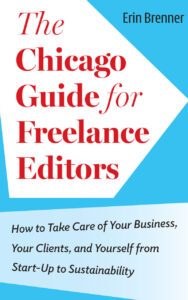Freelance Business Structures
If you’re working in the United States, you have a few options for business structures. The sole proprietorship is the easiest to open and is the cheapest to create and run. But while LLCs and S corporations (S corps) require a bit of work to set up, they offer you more protection as a business owner. Let’s review them.
Sole Proprietorship
Because you can work under your social security number (SSN) with a sole proprietorship, you don’t need to fill out any forms to start your business. As noted already, as a sole proprietor, you’ll pay the same federal, state, and city income taxes that employees do, plus the applicable self-employment tax (SET). You could wait until April 15 of the following year, when personal tax returns are due, to send in your tax money, but paying your taxes quarterly ensures the government gets its share. You’ll also be able to take business deductions, including for your home office. You can deduct those quarterly or annually. Talk to a tax accountant for advice on your personal situation.
There are a few downsides to sole proprietorship. The first is that you’ll be giving your SSN to clients you earn more than $600 from, and that may include indie authors. You can protect your personal information by getting a federal employer identification number (EIN). The application, available through irs.gov, can be completed online. Having an EIN is also one of a couple simple steps to getting a business bank account and, sometimes, a business credit card. Having a separate bank account for your business can help keep your finances organized, and if your clients pay by direct deposit or wire, you’re giving them access only to your business account. Also, business accounts tend to offer other features you may utilize as a business, such as the ability to send a wire fee, a line of credit for business expenses, and more detailed reports.
Another difficulty can be proving your income for personal loans. This will depend on your income stream and the lender you work with, especially if your business is prone to the feast-or-famine cycle. I’ve been fortunate to not have had a problem getting a loan I needed with just my income, but several editors I know have been turned down for loans they could easily afford. If you anticipate needing a loan in the near future and don’t have a cosigner, you may wish to choose a different business structure.
Finally, as a sole proprietor, you can be personally sued by clients. Especially in the United States, which has a litigious culture, this is something to consider. To combat this, you should vet clients carefully before taking them on. Are they who they say they are? Do they have a history of suing people? Do they seem trustworthy, both online and in your interactions with them? (We’ll talk about spotting red flags later in the book.) Next, be sure your estimates are as accurate as possible to avoid potential money conflicts, and use a solid contract that protects you from some of the most common client issues, such as a client surprised by the number of changes in their manuscript. Finally, you can carry insurance for genuine problems (more on that below).
A sole proprietorship is a good choice if you’re not sure you’ll stick with freelancing or you prefer a simpler structure and have ways to mitigate the downsides.
Limited Liability Companies
Halfway between a sole proprietorship and a corporation is a limited liability company (LLC), a popular choice among freelancers who want some separation between their personal assets and their business but don’t want all the requirements of a corporation. An LLC is a separate entity from you personally, with its own EIN. If a client wants to sue you and you’re an LLC, they will actually sue your LLC, effectively putting a firewall in front of your personal assets.
Because you are creating a taxable business structure, there are forms and procedures to follow to create an LLC. They vary from state to state, as do the costs for creating your new business. Often, there is an annual filing fee for your LLC. Check with your state for fees and processes.
The other big difference is that as the LLC owner, you draw a salary from your gross earnings, that is, the total income you’ve earned over a period of time. You’ll still pay personal income taxes, as well as SET, based on the salary you pay yourself. Technically, the company pays half of your FICA, but because the company is you, it amounts to the same thing. However, the LLC also pays taxes on its net profit (gross receipts − deductions − salary). Note that LLC taxes have a different payment schedule than personal taxes.
Because an LLC is a separate entity, you can choose to have the LLC pay you, the individual, rent instead of taking a home office deduction. This relieves you of tracking everything that goes into a home office deduction, though you’ll have to pay personal income tax on that rent. You can also pay yourself profit sharing, which is taxed at a lower rate than income. Again, talk to a tax accountant about your specific situation so that you stay in the government’s good graces.
S Corporations
Some freelancers choose to fully incorporate their businesses. While there are several corporation structures, the S corporation (S corp) is the most common and appropriate for individual freelancers. Like the LLC, the S corp is a separate entity with its own EIN. Here, too, there are forms and procedures, with associated annual costs. The laws regarding S corps are stricter, so you’ll need to become familiar with them and stay on top of your administrative tasks. A business lawyer or tax accountant can help you with that.
With an S corp, you will also have a board of directors and shareholders. Like an LLC, you’ll pay personal income taxes on what you earn from your business, but you’ll also pay taxes on any profits you pay your shareholders—that is, yourself. Here, too, the processes and fees will vary by state, so it’s wise to see what your state requires before deciding on this structure.
The Small Business Administration (SBA) is an excellent resource for more information about US business structures, and services like LegalZoom and Rocket Lawyer can help you complete the necessary paperwork. A business lawyer or a tax accountant can also offer advice on the best structure for your individual situation. Just as it’s wise for our clients to hire professional editors to get the best advice for their manuscript, as business owners we benefit greatly from seeking professional advice for matters outside of our expertise.
Reproduced with permission from The Chicago Guide for Freelance Editors: How to Take Care of Your Business, Your Clients, and Yourself from Start-Up to Sustainability by Erin Brenner, forthcoming from the University of Chicago Press in April 2024. © 2024 by Erin Brenner. All rights reserved.







